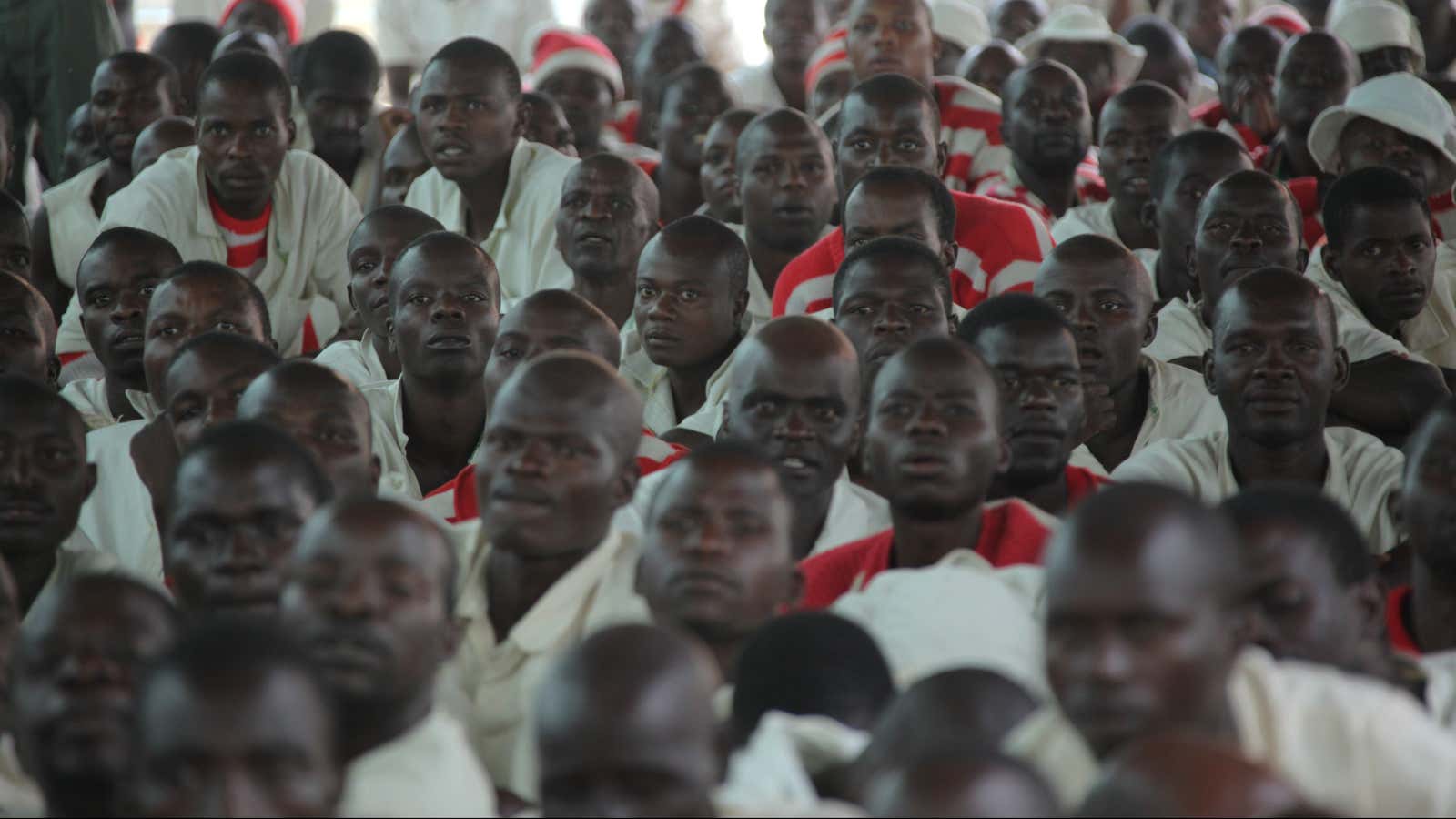Harare, Zimbabwe
Zimbabwe has taken strides in recent years to abolish capital punishment and there has been fervent debate about the future of the death penalty among locals, but there is strong interest in the job of hangman, which has been vacant for about 12 years.
The overwhelming interest by Zimbabwean applicants for the executioner post could probably be explained by Zimbabwe’s high unemployment rate, estimated to be over 80% by the World Bank and IMF.
Over the last decade millions of Zimbabweans have left the country in search of greener pastures across Africa and beyond as the economy continues to struggle amid wilting foreign direct investment and company closures. Most Zimbabweans generate income through a busy informal economy and there are few well-paying formal jobs.
Zimbabwe’s justice ministry said this week that as many as 50 men and women have applied for the job of hangman “in the past few months”. The last hangman Zimbabwe had retired in 2006.
Virginia Mabhiza, secretary in the ministry of Justice, Legal and Parliamentary Affairs, said “people are very interested” in the hangman’s job. There are about 90 people on death row in Zimbabwe but no executions have been carried out because the country does not have a hangman.
President Robert Mugabe had to commute the death penalty for 10 inmates on death row last year and said his cabinet was divided over abolition of the death penalty. For example his deputy Emmerson Mnangagwa only escaped the noose for sabotage offenses during Zimbabwe’s liberation war because he was under 18 years.
The country last carried out an execution in 2005. Women, the mentally ill, juveniles and those above 70 years of age are exempt from capital punishment in “conformity to Zimbabwe’s international obligations as a party to the International Covenant on Civil and Political Rights (ICCPR) which prohibits the execution” of these groups.
Human rights groups such as Amnesty International have campaigned for the abolition of death penalty in Zimbabwe.
However it is not clear when the country will appoint a hangman following the invitation for applications by Mugabe in August and subsequent overwhelming interest in the job.
The Zimbabwe Lawyers for Human Rights said the Zimbabwean constitution was against the death penalty.
“The death penalty breaches some fundamental human rights including the right to life as enshrined in section 48 of the Constitution and freedom from torture, cruel, inhuman and degrading treatment or punishment,” Kumbirai Mafunda, spokesperson for ZLHR said by phone.
